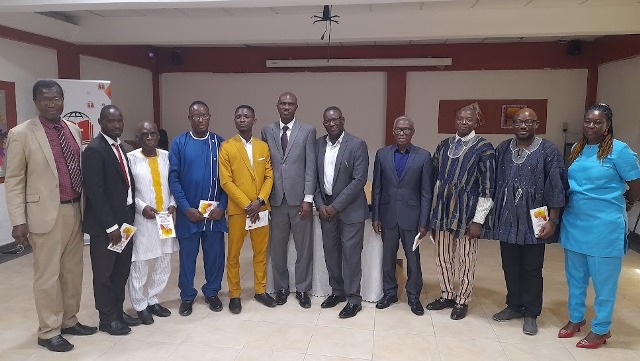The founder of the Africa Center for the Study of Worldviews and Wholistic Development of Society, Dr. Christopher Ampadu, PhD, has stressed the paradoxes defining Africa, particularly Sub-Saharan Africa.
Speaking at the Africa Center’s maiden graduation ceremony on Saturday, January 4, 2025, he lamented the continent’s contradictions.
Africa, he noted, is home to some of the most religious people in the world, boasting mega-churches and prayer camps, yet it remains plagued by endemic corruption and injustice.
He observed, “Africa is a land blessed with abundant resources and potential, yet millions live in abject poverty and hopelessness.”
“Just last week, nearly a thousand Africans perished trying to cross the sea in search of a better life. Many others die in the Sahara Desert. Why is a continent so richly endowed with resources unable to retain its people,” he added.
Mindset change
Dr. Ampadu emphasized the need for mindset transformation, identifying attitudes and behaviours as the root causes of Africa’s challenges.
“Without a change in mindset, new governments or policies will achieve little. We need a new breed of leaders with God’s heart and intentions,” he asserted.
Dr. Ampadu criticized religious institutions for failing to influence societal transformation effectively and stressed that a church that prays to a God it does not obey, honour, or respect cannot be effective.
He urged a redefinition of Christian ministry, calling for seminary graduates to become agents of transformation in their communities. “Godliness must permeate politics, finance, education, and every domain of society,” he added.
The Center’s Mission
Dr. Ampadu explained that the Africa Center for the Study of Worldviews is committed to addressing the continent’s contradictions through research, dialogue, and leadership development.
“Africa is not destined for poverty and despair. The Center is committed to nurturing the mindsets and leadership needed to realize Africa’s God-given potential,” he said.
The event saw graduates from Ghana, Senegal, and Rwanda being celebrated for their commitment to addressing Africa’s systemic challenges.
The church and societal transformation
In his keynote address, Dr. J.K. Antwi, former chairman of the Great Commission Church International, emphasized the need for patriotism and responsible leadership.
He criticized the church’s passive stance on societal issues and urged religious leaders to adopt a proactive approach.
“The church has abdicated its role. It should lead the fight for justice, care for the environment, and instil patriotism in citizens,” Dr. Antwi stated.
Pointing to biblical teachings as a foundation for addressing Africa’s challenges, he called for a paradigm shift in how people view their roles in society.
He urged the graduates to embrace their mandate as stewards of Africa’s resources and leaders of change, reminding them of the responsibility and perseverance required to achieve transformation.


